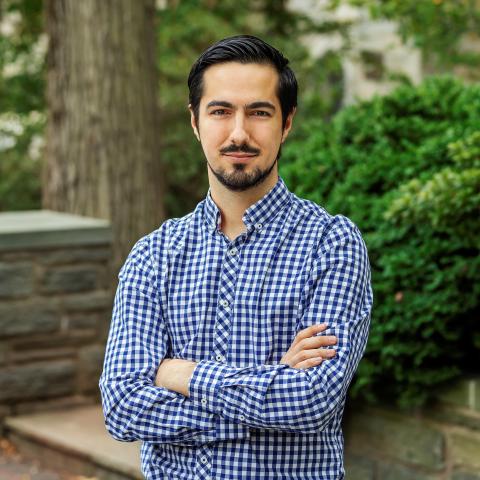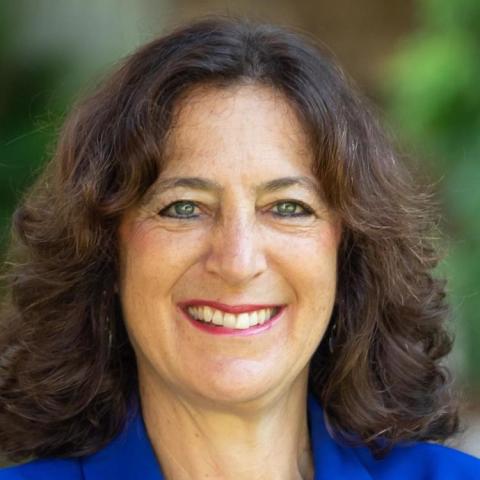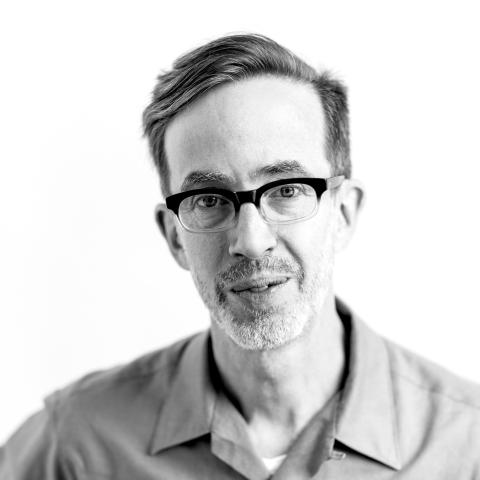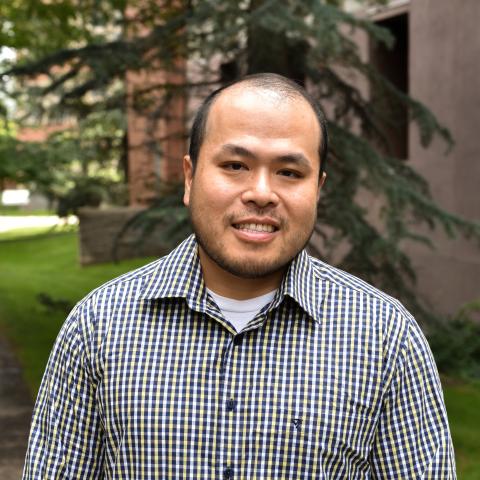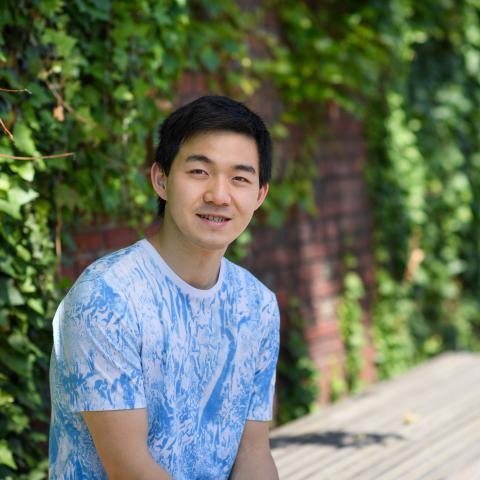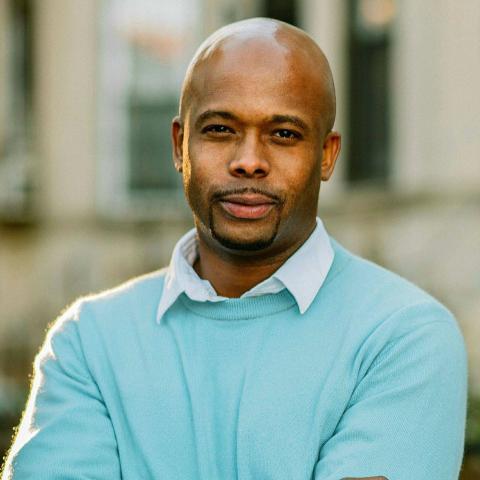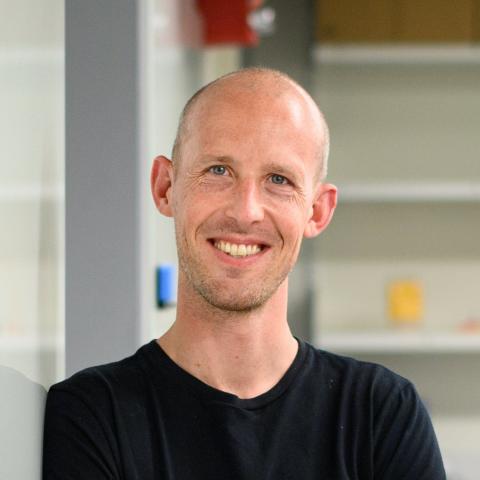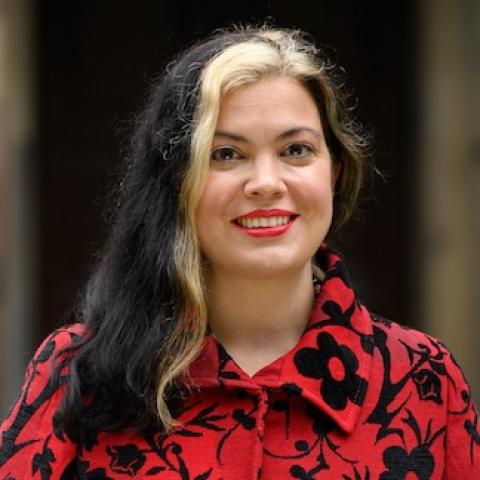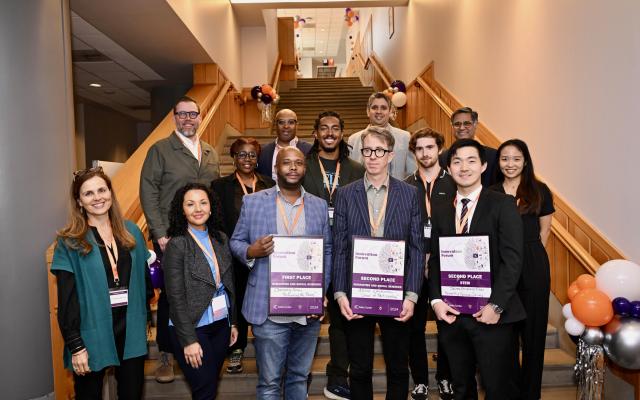
Using light to heal wounds and harnessing the arts to transform law enforcement training were among the winning initiatives showcased at this year’s Innovation Forum.
Bioengineering Postdoctoral Researcher Long Nguyen introduced his method for using light and bioengineering to aid wound healing and to enhance overall human health and well-being. Collaborating with Associate Professor Jared Toettcher, Nguyen is developing his system, Opto-Therapeutics, to improve healing in diabetic wound care, limb amputations, spinal cord injuries, and various other applications involving tissue damage.
Lewis Center Lecturer in Theater Chesney Snow captivated a packed audience with his initiative, Performing the Peace. This project, created in collaboration with Associate Professor Janet Vertesi, employs storytelling and theatrical techniques, along with advanced technologies, to foster empathy and humanistic approaches within law enforcement training. Chesney's mission is to bridge understanding and cultivate community connections by merging the arts, technology, and scientific principles, ultimately enhancing de-escalation strategies in law enforcement and bolstering trust within the community.
Nguyen and Snow each took top prizes of $15,000 each at the forum. Nguyen won in the category for science and technology innovations, while Snow won in the Humanities and Social Sciences division. This annual competition recognizes Princeton research with commercialization, cultural, or societal potential. The Innovation Forum is hosted by the Keller Center for Innovation in Engineering Education and co-sponsored by the Office of Technology Licensing and the Humanities Council at Princeton.
Princeton Engineering alumnus Robert Shi won the technology division’s $10,000 second-place award for his system for delivering packages. Shi, who works with Assistant Professor Jaime Fernández Fisac, uses robotics and artificial intelligence to enhance the van-to-door segment of package delivery services.
Lewis Center Lecturer in Theater Aaron Landsman took the Humanities and Social Sciences second-place award. His project, School for Participation, uses tools and techniques from the theater arts to instill joy and creativity into civic engagement, building more robust democracies through strengthening local governments and communities.
In her opening remarks, Dean Andrea Goldsmith said that innovations like those presented at the forum exemplify her vision for the School of Engineering and Applied Science and its commitment to extending its advancements beyond the "orange bubble" to foster meaningful social impact and create ‘technologies for good.’
She emphasized Innovation Forum's unique role in supporting and elevating advancements in all disciplines across campus. She stated, “Collaboration between innovators in STEM fields, the Social Sciences, and the Humanities is essential to developing technology that significantly benefits society, and that is what brought me to Princeton as the Engineering Dean.”
